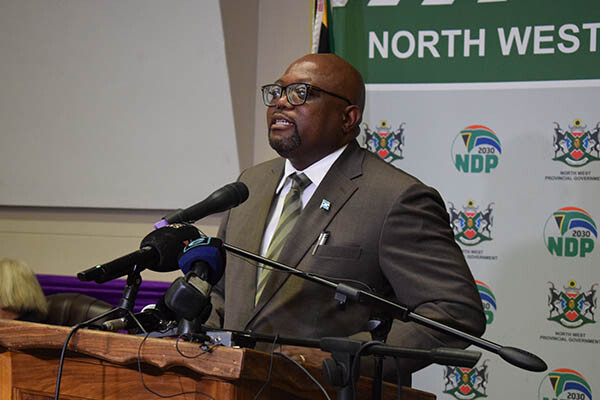- African nations undermine their financial development by prioritising commerce with Europe and the USA over regional markets.
- How can we be certain that African nations commerce amongst themselves? asks Dr. Phenyo Butale, Botswana’s Minister of Worldwide Relations.
- “We [Botswana] have high-quality beef in Botswana and the North West province, we export it to the European Union, but Angola and the Democratic Republic of the Congo purchase their beef from Brazil. Does that make sense? It doesn’t,” says Dr. Butale.
Regardless of its huge assets and manufacturing capability, regional commerce in Africa stays low with many economies relying closely on abroad markets. This state of affairs has prompted Botswana to boost the alarm about low ranges of intra-African commerce.
“It’s disheartening that Africa continues to be unable to understand commerce amongst its nations,” stated Dr Phenyo Butale, Botswana’s Minister of Worldwide Relations, delivering a lecture in honour of the late South African Deputy Overseas Affairs Minister Dr Aziz Pahad on the North-West College (NWU) on 25 February 2025.
Emphasising the necessity for stronger financial ties amongst African nations, Dr Butale questioned why nations proceed to import items available throughout the continent.
“We needs to be asking ourselves how one can make intra-Africa commerce a actuality,” he stated. “How can we be certain that African nations commerce amongst themselves? Now we have high-quality beef in Botswana and the North West province, we export it to the European Union, but Angola and the Democratic Republic of the Congo purchase their beef from Brazil. Does that make sense? It doesn’t.”
His remarks highlighted issues that African nations undermine their financial development by prioritising commerce with Europe and the USA over regional markets. Some argue that this observe contributes to financial stagnation.
Dr Butale additionally mirrored on the diplomatic legacy of Dr Aziz Pahad who performed a key function in shaping Africa’s overseas coverage by way of establishments such because the African Union and the Southern African Improvement Group.
“Dr Pahad understood that for South Africa to thrive, Africa should thrive. His diplomatic acumen and strategic engagement served as a guiding mild. He taught us that dialogue, not the barrel of a gun, is the surest option to resolve battle.”
He added that the decision for elevated intra-African commerce comes amid broader efforts to implement the African Continental Free Commerce Space settlement, which goals to create a unified market. Nonetheless, logistical, regulatory and manufacturing challenges proceed to hinder its full realisation.
Dr Butale’s feedback underscore the urgency of shifting commerce priorities throughout the continent. “The query is just not whether or not Africa can commerce inside itself,” he stated. “It’s whether or not we’re prepared to make it occur.”

The State of Intra-African Commerce
Intra-African commerce has traditionally been restricted, accounting for roughly 15 per cent of the continent’s whole commerce, considerably decrease than intra-regional commerce figures in Europe and Asia.
To deal with this disparity and foster financial integration, the African Continental Free Commerce Space (AfCFTA) was established in 2019, aiming to create the world’s largest free commerce space by connecting 54 of the 55 African Union member states.
As of April final yr, the AfCFTA entered its operational section, marked by the institution of guidelines of origin, 90 per cent tariff liberalization, an internet mechanism to report non-tariff limitations, a Pan-African cost and settlement system, and the African Commerce Observatory portal. These developments are designed to streamline commerce processes and improve transparency throughout the continent.
Influence on Key Sectors
The vitality sector stands to learn considerably from the AfCFTA. The settlement is predicted to drive funding in Africa’s vitality infrastructure, notably in nations like South Africa, Ghana, and Kenya, that are experiencing excessive charges of urbanization and electrification.
By encouraging the event of cross-border infrastructure and renewable vitality tasks, the AfCFTA positions nations similar to South Africa, Nigeria, and Egypt to increase their vitality exports whereas boosting intra-African commerce.
Regardless of these developments, a number of challenges nonetheless face intra-African Commerce. They embrace:–
Infrastructure Deficits: Many African nations lack the mandatory infrastructure to help seamless commerce, together with environment friendly transportation networks and dependable vitality provides.
Regulatory Boundaries: Numerous regulatory environments and non-tariff limitations can impede the free move of products and companies throughout borders.
Restricted Free Motion: Touring throughout Africa with a home passport stays difficult attributable to in depth visa necessities and bureaucratic hurdles. This problem considerably hinders intra-African commerce and cultural alternate. Whereas the AfCFTA and the Free Motion of Individuals Protocol purpose to deal with this, solely a small variety of nations have ratified these agreements, and only a few provide visa-free journey to all African nationals.
Future Outlook
The AfCFTA goals to extend intra-African commerce to 38 per cent by 2030, cut back poverty for 30 million individuals, and enhance the continent’s GDP by 7 per cent by 2035.
Reaching these objectives requires addressing the aforementioned challenges by way of concerted efforts in infrastructure improvement, regulatory harmonization, and insurance policies selling the free motion of individuals. World help for the AfCFTA, together with initiatives from worldwide companions, signifies a promising outlook for Africa’s financial integration and improvement.
In abstract, whereas intra-African commerce has traditionally been restricted, the implementation of the AfCFTA marks a big step towards financial integration. By addressing present challenges and capitalizing on alternatives in key sectors like vitality, the continent is poised to boost intra-regional commerce and obtain sustainable financial development.
Learn additionally: AfCFTA’s promise: liberating Africa from the chains of uncooked materials export














